Introduction
Can Parakeet Talk: Parakeets, those vibrant and enchanting little birds often found perched in cages or fluttering gracefully in our homes, have long captured the fascination of pet enthusiasts and bird lovers alike. One of the most captivating aspects of these avian companions is their potential to mimic and vocalize sounds, including human speech. Parakeets, scientifically known as Melopsittacus undulatus, are renowned for their remarkable ability to mimic sounds from their environment. This includes not only the chirping of other birds and the rustling of leaves but also human speech and various other noises.
Their uncanny talent for vocal imitation has earned them a place as one of the most sought-after talking birds in the world of aviculture. To explore the question of whether parakeets smart can talk, we must delve into the intricacies of their vocal capabilities, cognitive abilities, and the factors that influence their language development. Unlike some other parrot species, such as the African Grey or the Amazon Parrot, parakeets are not renowned for their extensive vocabulary or complex sentence formation. Nonetheless, they possess a remarkable capacity to learn and repeat words, phrases, and sounds with surprising accuracy.
In we will embark on a journey to uncover the fascinating world of parakeet vocalization. We will delve into the factors that influence their speech acquisition, the methods for training them to talk, and the potential limitations of their language abilities. Along the way, we will gain insights into the unique bond that can develop between a parakeet and its human companion through the shared experience of communication. So, let’s unravel the mysteries of whether these charming birds can indeed talk and what it entails to nurture their conversational talents.
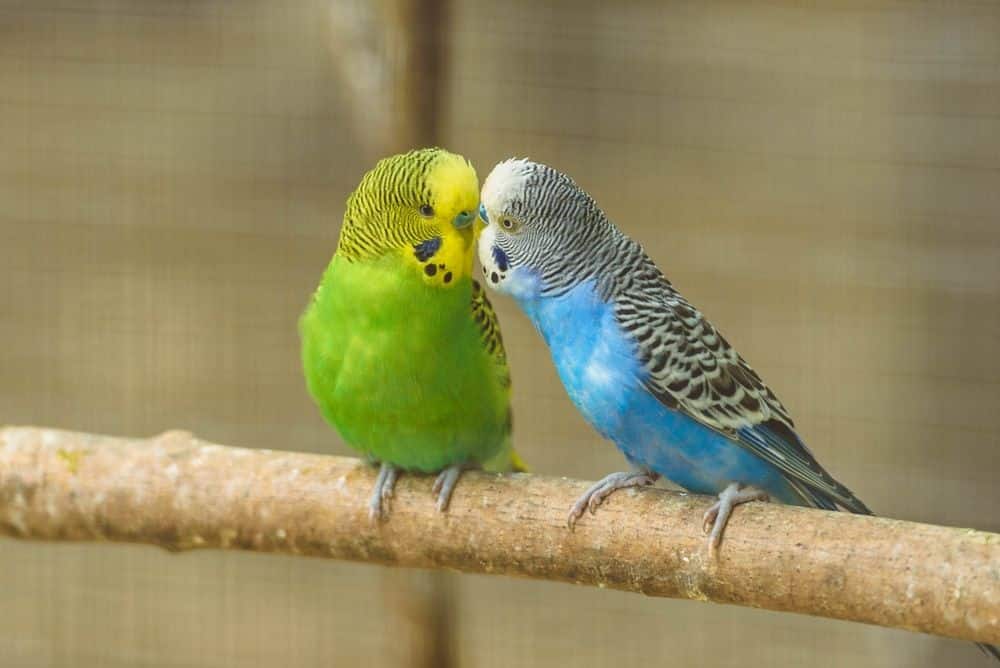
Can I talk to my budgie?
Budgies will respond to an animated voice more than a drone. Don’t whisper, or the words will never sink in; and don’t shout, or that will merely scare him. Always talk to your budgie – greet him with “good morning”, say goodnight before retiring, and use lots of hellos at other times.
Developing a strong bond with your budgie is essential. Spend time near the cage, talk softly, and offer treats to build trust. Patience is key as it may take time for your budgie to become comfortable with you. Choose simple, clear words or phrases you’d like your budgie to learn. Repeat them consistently and with enthusiasm. Be sure to use a gentle and encouraging tone.
Linking words to actions can be helpful. For instance, say “step up” when you want your budgie to perch on your finger. Repetition and consistency are crucial here. Reward your budgie with treats, praises, or affection when they make an effort to mimic or respond to your words. Positive reinforcement encourages them to keep trying.
Not all budgies will learn to talk, and some may take longer than others. Be patient and persistent in your efforts without pressuring your bird. Budgies are social birds, so interact with them regularly. Talk to them, play with toys together, and mental stimulation to keep their minds active.
Can girl parakeets talk?
Your male parakeet makes many sounds, while your female parakeet has one loud chirp for a vocalization. This is a good observation. Male budgies can learn to talk quite well; female parakeets generally don’t learn to talk. This is also true of cockatiels.
Individual Variation: Just like humans, parakeets have their unique personalities and aptitudes. Some may mimic sounds and words, while others may not be as interested or skilled in doing so.
Environment and Socialization: A parakeet’s environment and the amount of social interaction they receive can influence their talking abilities. Social parakeets exposed to diverse sounds and regular human interactions are more prone to learning speech.
Lead by Example: If you have other talking birds or a male parakeet in the same environment, they can serve as vocal models, inspiring female parakeets to mimic sounds and words more readily. Consistent repetition of words and phrases, along with patience and positive reinforcement, are key to teaching a parakeet to talk.
Which parrot is smartest?
The African grey parrot
The African grey parrot is considered by many to be the world’s smartest bird. This highly intelligent species is known for its exceptional ability to mimic human speech, as well as its remarkable problem-solving and cognitive abilities.
African Grey parrots are often regarded as some of the smartest birds in the world. They are exceptional at problem-solving, have an extensive vocabulary, and can understand and use words in context. They are known for their ability to mimic human speech with astonishing accuracy and demonstrate advanced reasoning skills.
Although not a parrot, the New Caledonian crow deserves mention for its remarkable intelligence. These birds are known for their tool-making abilities and problem-solving skills.They make tools from leaves and twigs to extract insects from tree bark, a skill once thought exclusive to primates.
Kea parrots, native to New Zealand, earn renown for their inquisitiveness and problem-solving abilities. They have been known to engage in playful behaviors, such as solving puzzles and dismantling objects. Their intelligence is adapted to their mountainous habitat, where they navigate complex environments and social dynamics. Blue-headed Pionus parrots exhibit problem-solving skills and quickly learn tricks and behaviors.
Are parakeets friendly?
Parakeets are loving creatures that crave the attention of their owners. Make wonderful pets for families living in small homes and apartments. Excellent choice for families with small children and other pets.
Parakeets are naturally social birds. In the wild, they live in large flocks, which fosters a strong sense of companionship and communication among them. This social nature translates well into the home environment, where they readily bond with their owners and other pets. Parakeets exhibit playful and active behavior. They enjoy interacting with toys, exploring their environment, and engaging in various activities.
Parakeets have the capacity to form strong bonds with their human caregivers. With time and patience, they can become quite affectionate, often seeking attention through chirps, head bobs, and physical contact. Some may even relish gentle petting or scratching.
While they may not possess the extensive vocabulary of larger parrot species, parakeets are excellent mimics and can learn to talk and imitate sounds. They often communicate through a variety of vocalizations, including cheerful chirps and whistles, which can be endearing to their owners.
How intelligent are parakeets?
The “parakeets” are known for their intelligence and are even able to mimic human speech, but that intelligence might serve an even more important function: reproduction and pair bonds, according to a new study by a researcher at the University of Colorado Boulder.
Parakeets have a remarkable ability to learn and adapt. They quickly pick up on patterns, routines, and new experiences. This makes them trainable for tricks, behaviors, and a limited vocabulary. Parakeets exhibit problem-solving skills, especially when it comes to obtaining food or accessing toys. They display resourcefulness and creativity by manipulating objects and opening food containers with their beaks and feet.
Parakeets are highly social birds, both in the wild and as pets. They can recognize familiar faces, whether it’s their human caregivers or other parakeets, thanks to their keen sense of social dynamics. They communicate through various vocalizations and body language to convey their emotions and intentions. While parakeets may not match the vocal prowess of larger parrot species, many can imitate sounds, including human speech, with surprising accuracy. They have the ability to mimic words, phrases, and environmental sounds, which is a testament to their auditory intelligence.
Parakeets have good memory and recall abilities. They can routines, locations of favorite perches, and the names or sounds associated with their human caregivers. This memory retention aids in their ability to learn and adapt. Parakeets are naturally curious and love to explore their environment. Toys, puzzles, and engaging objects captivate their minds.Their playful and inquisitive behavior demonstrates a level of intelligence and the ability to seek out mental stimulation.
Should I touch my budgie?
Be careful not to let your finger snap the bird’s neck – if it starts biting or snapping at you, stop petting it immediately. Budgies do enjoy human touch, but they should never be handled roughly.
The first and most factor to consider is your budgie’s individual personality. Budgies have distinct personalities, just like humans. Some budgies are naturally more outgoing and sociable, while others may be more reserved or cautious. It’s crucial to respect your budgie’s comfort level and boundaries. If your budgie enjoys physical contact, it will likely show signs of interest and trust.
The age at which you acquire your budgie can influence its willingness to be touched. Building trust is key to touching your budgie. Spend time near the cage, talk softly, and offer treats to create a positive association with your presence. Let your budgie acclimate to your hand’s presence nearby without immediately attempting to touch it. Watch for signs that your budgie is comfortable with your presence and ready for touch.
Do budgies fly to you?
At this point you should be able to raise your finger-perch and speak the command word, and the budgie will fly to you. Eventually he will do this without the enticement of a treat, and will happily use your head and shoulders as well as your finger.
The most crucial factor influencing whether a budgie will fly to you is the level of trust and bonding you have established with the bird. Budgies are naturally social animals, and they are more likely to fly to you if they feel safe and have developed a strong bond with you. Breeders who hand-raise budgies or expose them to human interaction from a young age generally find them more inclined to fly to their human caregivers
Socialization and training play a significant role in encouraging budgies to fly to you. Spending time near the cage, talking softly, offering treats, and using positive reinforcement techniques can help build trust and encourage the bird to approach you willingly. Creating a safe and bird-friendly environment is essential. Ensure that the room where your budgie is allowed to fly freely remains free of hazards like open windows, ceiling fans, or other pets that could pose a threat.
Encourage your budgie to fly to you gradually. Begin by having it perch on your finger inside the cage. Over time, you can extend your finger just outside the cage door, allowing the bird to step out voluntarily. Eventually, the budgie may choose to fly to you when it feels comfortable. Use positive reinforcement techniques to reward your budgie for flying to you or stepping onto your hand.
Can a parakeet eat a banana?
Bananas are safe for healthy parakeets when fed in moderation, but they shouldn’t eat more than a few slices a day. If your parakeet has ongoing health issues, speak to your veterinarian before adding any new foods to their diet.
Offer bananas in moderation as an occasional treat rather than relying on them as a primary food source. A small portion, roughly the size of a thumbnail, is sufficient for a parakeet. Always offer fresh bananas to your parakeet. Remove any peel and slice the banana into small, manageable pieces.
Ensure that bananas are part of a balanced diet that includes a variety of other fruits, vegetables, seeds, and pellets. Diversity in their diet is essential for a wide range of nutrients. Before offering bananas or any fruit, ensure that you thoroughly wash them to remove any pesticides or contaminants. Also, clean the food dish and remove any uneaten portions promptly to maintain cleanliness in the cage.
Avoid giving your parakeet the seeds of fruits, including banana seeds, as they can be difficult to digest and may cause health issues. While allergic reactions are rare, monitor your parakeet for any signs of digestive upset or allergies when introducing new foods like bananas. Budgerigars can be quite fond of the sweet taste of bananas. However, overconsumption can lead to weight gain and related health issues.
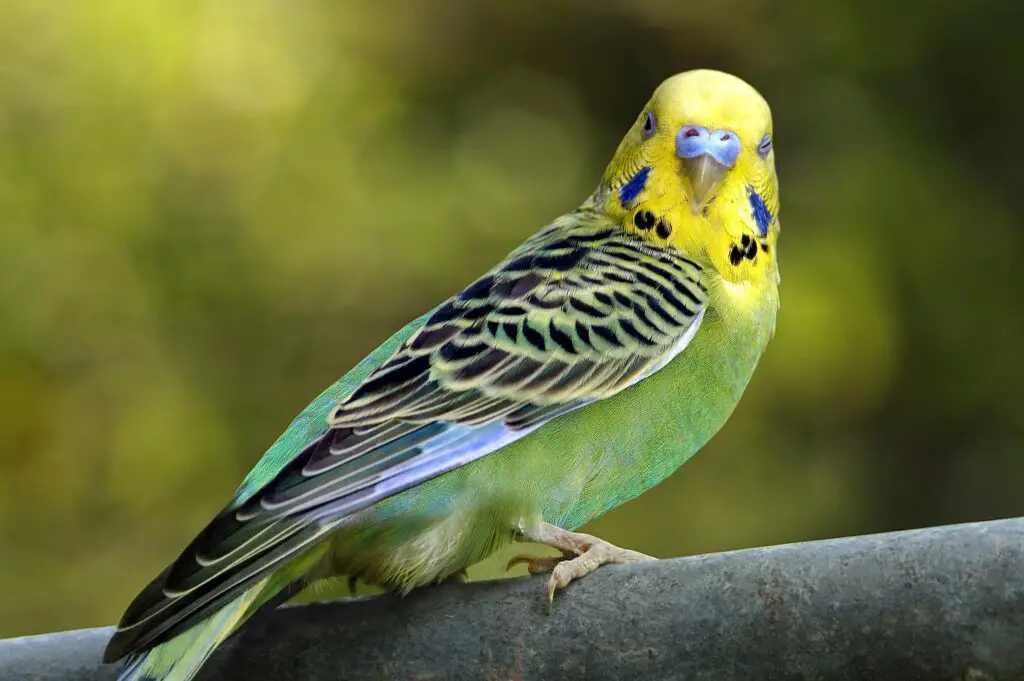
Conclusion
It leads us into a captivating world of avian communication and the remarkable abilities of these charming birds. While parakeets may not possess the extensive vocabularies of some larger parrot species, their capacity for vocal mimicry and communication is truly astonishing. Throughout our exploration, we have discovered that parakeets can indeed talk, albeit in a more limited capacity compared to their larger counterparts. Their ability to learn and repeat words, phrases, and sounds demonstrates their intelligence and parakeets survive adaptability. However, it’s essential to the parakeet individual variation among parakeets. Not all parakeets will become chatterboxes, and some may never speak a word.
Factors such as age, genetics, and the amount of time spent with their human companions can influence a parakeet’s language skills. Therefore, it’s crucial to appreciate each bird’s unique personality and abilities. Moreover, the ability of parakeets to talk is just one facet of their charm. These birds bring joy and vibrancy to our homes with their vibrant plumage, cheerful chirping, and endearing behaviors. Their presence is a reminder of the beauty of the natural world and the diverse forms of life we share our planet with. In the quest to answer the of whether parakeets can talk, we have also touched upon the importance of responsible pet ownership.
A loving and stimulating environment, along with proper care and social interaction, is vital for the well-being of these intelligent and sociable birds. Their parakeet capacity to talk is a testament to their adaptability and their potential to become cherished companions. In the end, the ability of parakeets to talk is not just a matter of words and phrases. It’s a testament to the remarkable relationship that can develop between humans and their avian companions, a bond formed through shared sounds, laughter, and the joy of learning together. So, whether your parakeet becomes a chatterbox or simply a delightful presence in your home, they will undoubtedly bring a unique and enriching experience to your life.

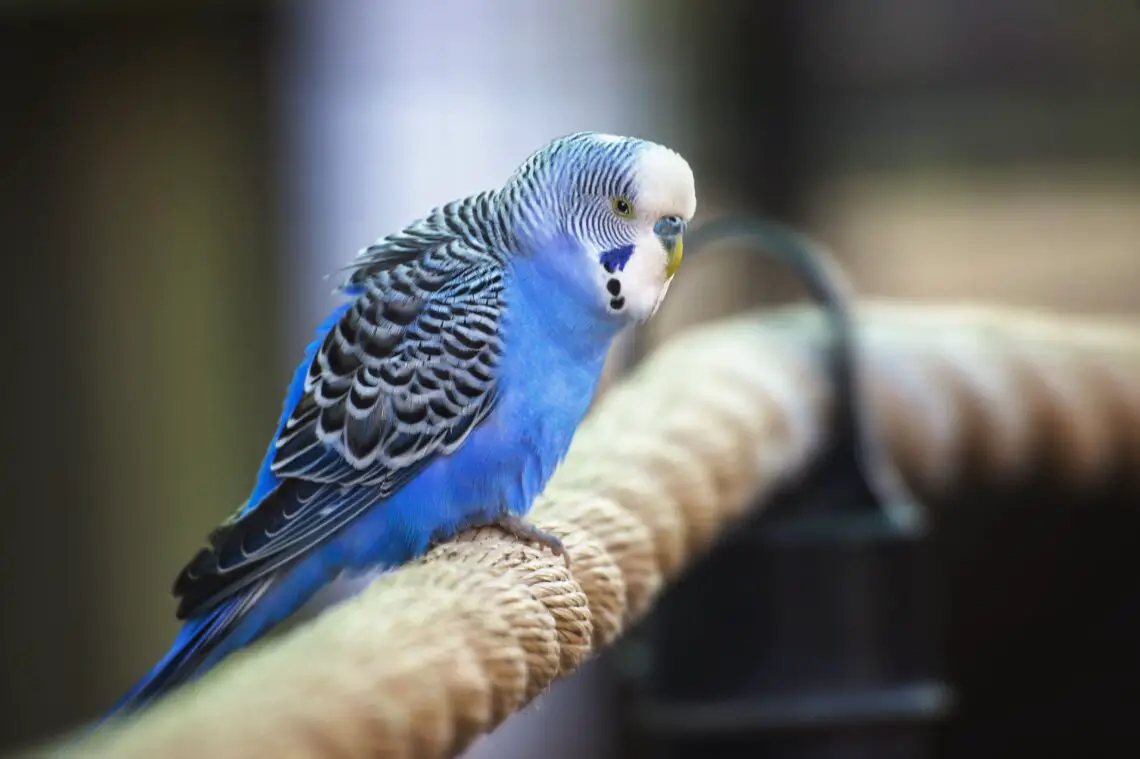
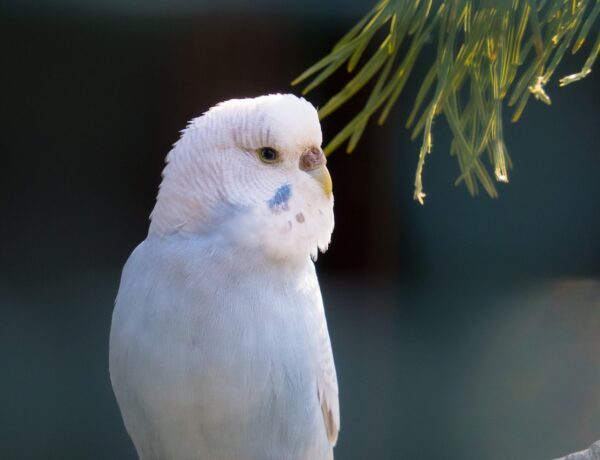
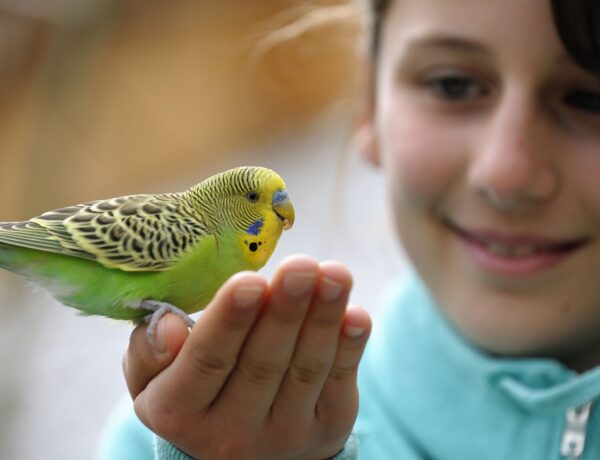
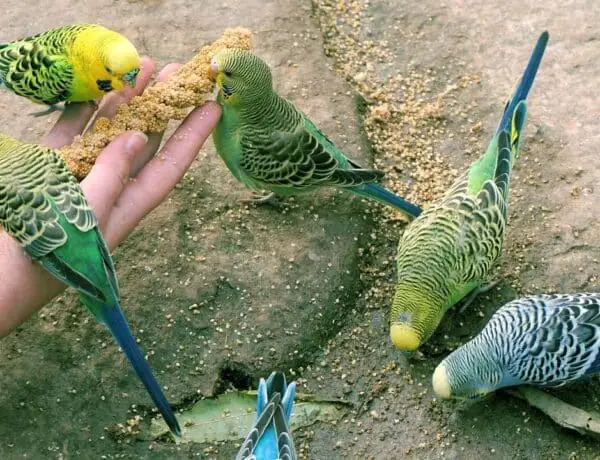
No Comments